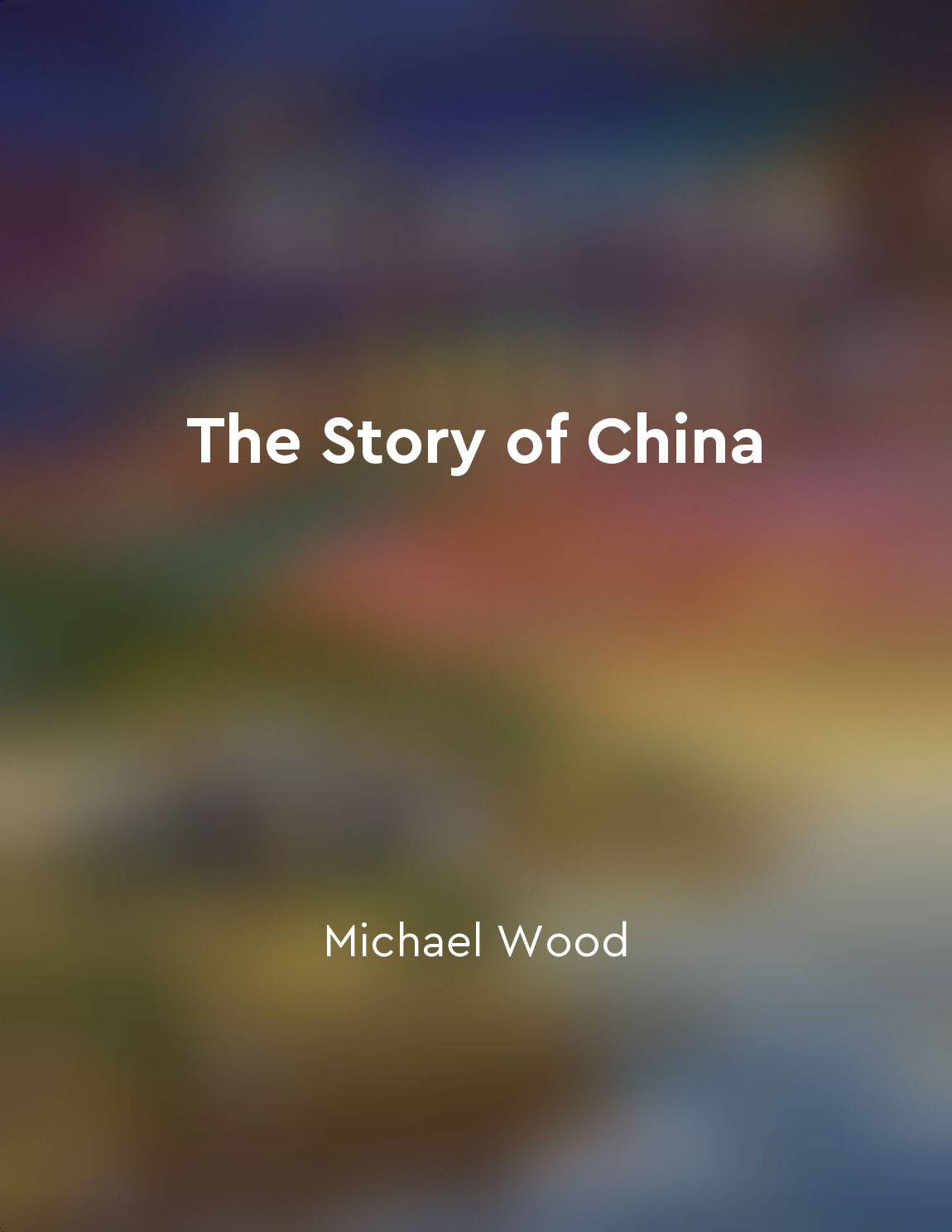Audio available in app
The Opium Wars had a lasting impact on China's relationship with the West from "summary" of The Story of China by Michael Wood
The Opium Wars, fought between China and Britain in the mid-19th century, were a turning point in China's history. The wars had far-reaching consequences that would shape China's relationship with the West for years to come. By examining the events of the Opium Wars, we can gain a deeper understanding of the complexities of China's interactions with Western powers during this period. The First Opium War, which lasted from 1839 to 1842, was sparked by China's attempts to suppress the opium trade that was devastating its population. Britain, which relied heavily on the opium trade for its economic prosperity, was unwilling to comply with China's demands. This led to a conflict in which British forces easily defeated the Chinese, thanks in part to their superior military technology. The Treaty of Nanking, signed in 1842 at the end of the First Opium War, imposed humiliating terms on China. The treaty forced China to cede Hong Kong to Britain, open up several ports to foreign trade, and pay a large indemnity to Britain. These concessions marked the beginning of a period of unequal treaties between China and Western powers, which would have a lasting impact on China's sovereignty and independence. The Second Opium War, fought from 1856 to 1860, further weakened China's position vis-a-vis the West. The war was triggered by a series of incidents, including the seizure of a Chinese ship by the British and French, and the murder of a British diplomat in Beijing. Once again, British and French forces emerged victorious, and China was forced to sign the Treaty of Tientsin, which imposed even more onerous terms than the Treaty of Nanking. The Opium Wars exposed China's vulnerabilities and highlighted the technological and military superiority of the Western powers. In the aftermath of the wars, China was forced to open up its economy to foreign influence and suffered greatly as a result. The legacy of the Opium Wars continues to shape China's relationship with the West to this day, serving as a reminder of the enduring impact of historical events on international relations.Similar Posts
The future of South Asia holds both opportunities and challenges for the region and the world
The region of South Asia is poised at a critical juncture in history, with a future that is filled with both promise and peril....

importance of understanding history for future security threats
Understanding history is crucial for anticipating and preparing for future security threats. By examining past events and patte...

Afghanistan, Soviet invasion, Mujahideen, CIA support
The Soviet invasion of Afghanistan in December 1979 was a pivotal event in the Cold War. The Soviet Union sought to prop up a C...

Survival instincts
In the face of extreme adversity, our instincts for survival kick in. These instincts are deeply ingrained in our genetic makeu...

